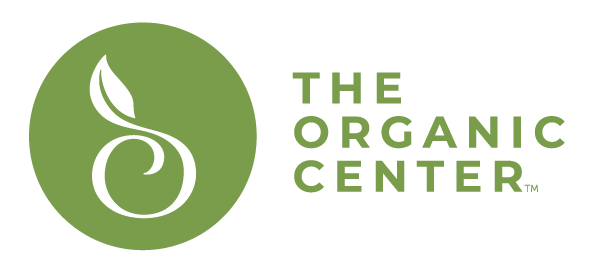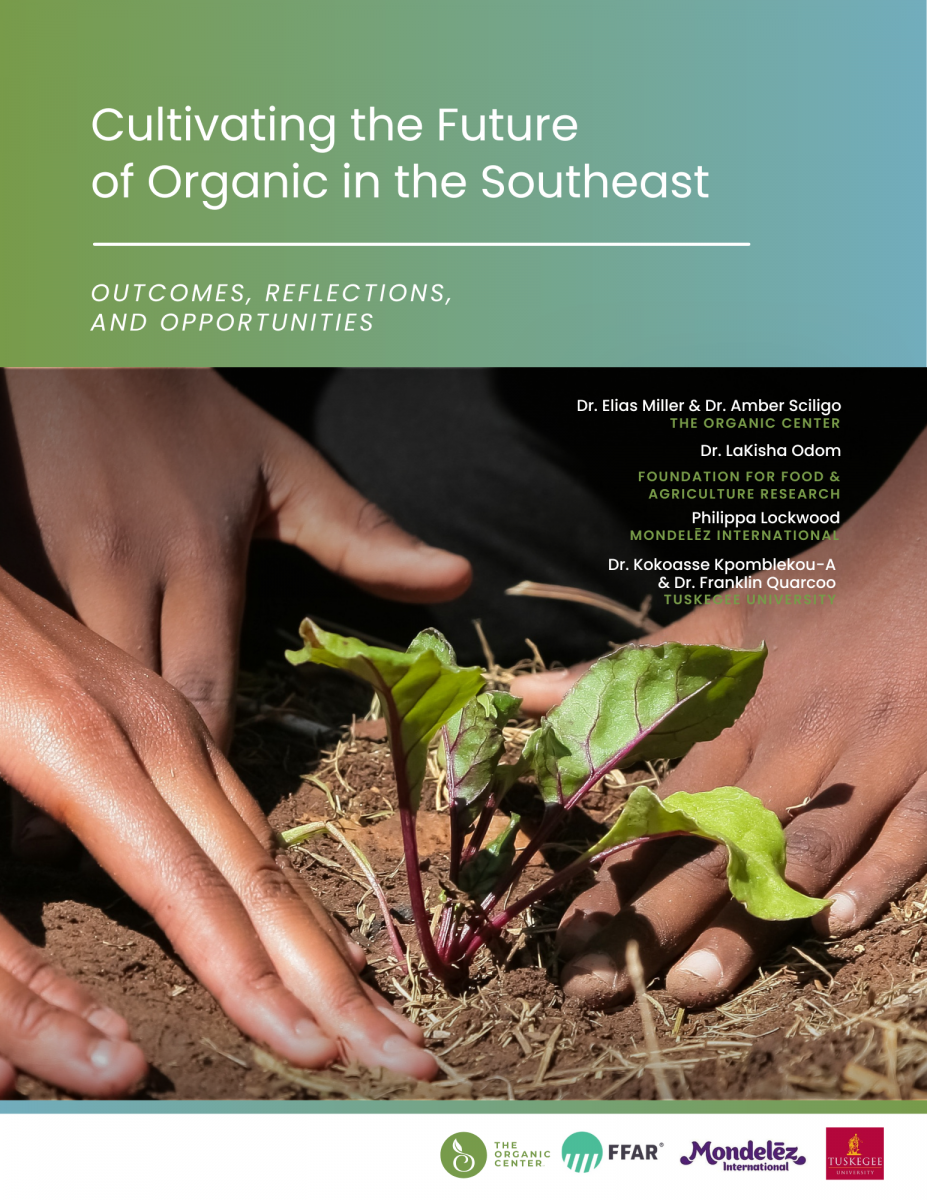Announced the 2023 Organic Center–FFAR joint Organic Research Program and invited applications for innovative projects that supported farm productivity and resiliency. The program prioritized projects that emphasized systems-based approaches and cross-sector partnerships to strengthen the organic sector.
Award Amount
Over the course of the program, research and extension projects were funded in the total amount of $1,414,637.28.
Program Priorities and Funded Projects
Through the Organic Training for Agricultural Professionals Prize and the joint Organic Research Program, The Organic Center and FFAR funded farmer-led, systems-based projects that supported organic production while expanding training and knowledge exchange. These initiatives prioritized projects with the potential for multi-regional impact, cross-sector collaboration, and measurable in-person and online engagement between farmers and organic agriculture professionals. A strong emphasis was placed on supporting underrepresented regions and ensuring that project data and outcomes remain open and accessible to the public. Award recipients demonstrated a commitment to building resilient organic systems, improving climate adaptability, and securing matching funds to expand the reach and long-term impact of their work.
Extension Awards
University of Wisconsin-Madison Organic Grain Resource and Information Network (OGRAIN)
This project expanded networks of support for organic grain producers in the Midwest by building out educational resources, facilitating Extension partnerships, and coordinating in-person and online training focused on production, financial management, and marketing of organic grains.
Learn More
Oregon Tilth
Funds were used to develop educational opportunities for producers, agency staff, consumers, and policymakers, sharing on-farm and university-based research to accelerate organic learning. The project provided science-based training to help producers transition and improve organic crop systems.
Learn More
Iowa State University Organic Agriculture Program
This initiative expanded organic production education through train-the-trainer and organic certification workshops, videos and podcasts, webinars, and field days.
Learn More
Organic Agronomy Training Service (OATS)
This project improved the effectiveness of OATS’ professional development for agricultural advisors by conducting a national landscape analysis to guide recruitment, training, and network-building. The team produced durable educational resources, including videos, fact sheets, and podcast episodes on emerging issues in organic advising.
Learn More
Kalona Regenerative Network
This project strengthened organic and regenerative production through hands-on education and outreach. Workshops trained producers in financial planning, record-keeping, grazing management, pasture recovery, and organic certification. Over 70 producers and consumers participated in four events showcasing organic dairy practices and transition pathways.
Learn More
Rodale Institute
This project expanded Rodale Institute’s online education portal, training farmers and agricultural professionals nationwide in organic and regenerative farming methods. The updated platform enhanced multilingual access and supported successful transitions to organic production.
Learn More
Research Awards
Integration of Agroforestry as a Transformative Solution to Climate Change Mitigation and Adaptation in Organic Farms
Dr. Sindhu Jagadamma , University of Tennessee
This project tested the feasibility of agroforestry as a tool for climate mitigation and adaptation in Southeastern organic farms, addressing challenges of marginal soils and subtropical climates to build sustainable, climate-resilient systems.
Advancing Modeling for Organic Farming Systems
Dr. Erin Silva , University of Wisconsin-Madison
This project evaluated carbon and nutrient modeling tools to more accurately reflect organic farming practices and their role in reducing climate change impacts.
Investigating the Re-Integration of Organic Food Crops and Animal Production on Above- and Belowground Biodiversity, Soil Health, Farm Resilience, and Food Safety
Dr. Moriah Bilenky , Purdue University
This research identified strategies for integrated crop–livestock systems (ICS) through replicated field trials, evaluating impacts on soil microbiome diversity, pathogen presence, and economic feasibility to improve resilience and food safety on organic farms.
A Deeper Dive: Linking Below-Ground Soil and Water Quality with Above-Ground Productivity in Organic Systems
Dr. Kathleen Delate , Iowa State University
This long-term study examined how crop rotations influence water quality, soil health, greenhouse gas emissions, and farm profitability, enhancing understanding of the economic and environmental viability of organic systems.



